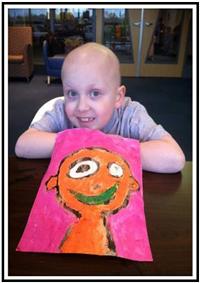When Past Trauma Impacts Your Current Parenting
Domestic violence. Child abuse. Natural disasters. As we’ve become more aware of the impacts of these and other traumatic experiences on people throughout their lives, we’ve come to understand that the effects of trauma can be felt for years to come. People who have faced one or more traumas can be affected in many areas of their lives, including their physical, mental, and emotional health and in their relationships.
Parenting is one of the areas in which traumatic effects can surface, but parents with a history of trauma may struggle to understand how they can navigate their past trauma amid the demands of their current parenting. Today’s blog post will offer some insights and practical strategies to help parents manage the effects of past trauma and bring the healthiest version of themselves to the parenting process.
It’s important to understand some of the ways that past trauma can impact parenting.
First, unaddressed trauma can cause emotional distress and, in some cases, mental health symptoms, such as anxiety, depression, and/or posttraumatic stress disorder (PTSD). When these symptoms go untreated, they can impact a parent’s ability to respond to the demands of parenting, and they may find themselves feeling very overwhelmed by even relatively minor parenting stressors.
Beyond the mental health effects of trauma, parents who have faced traumatic experiences in their lives may have a hard time with certain developmental transitions or phases of their children’s lives. For example, someone who witnessed or experienced abuse as a child may feel extreme stress or reminders of the past trauma when their child or children are the same age as they were when the abuse occurred.
Another possible impact of past trauma on current parenting is sensitivity to triggers, or circumstances that give rise to difficult memories or emotions related to past abuse. For example, a parent who experienced domestic violence in a past relationship may feel triggered when their child becomes demanding and has a tantrum. The control dynamics that come up in the tantrum may give rise to similar feelings that occurred in response to the parent’s former abuser. The triggered emotions can make it difficult for the parent to stay present in the current moment and respond to the child in a calm, intentional manner.
If you or someone you know experienced past trauma that is impacting your current parenting, know that support is available, and there are steps you can take to work through the past trauma and maximize your effectiveness as a parent.
- Seek counseling. A professional counselor or therapist can help you examine your past experiences with trauma and how it impacts you as a parent and in other areas of your life. Be sure to find a counselor who has experience and training to help people affected by trauma, and you can ask any prospective counselor to describe their experience to you when you first reach out for help. You can find links to directories of professional counselors and therapists through our Healthy Relationships Initiative (HRI) website.
- Build your parenting skills. All parents can benefit from learning new relationship skills and information, but this is especially true if your confidence as a parent is impacted by your past trauma. Check out our HRI toolkits section for parenting tips for different stages of your children’s lives, and be on the lookout for parenting education programs in your community.
- Develop a strong support system. Consider connecting with a support group in your community for people who have faced a similar traumatic experience to you. These types of support groups can help you realize that you’re not alone, as well as connect you with others who can share strategies that they used to overcome some of the challenges you may have faced as well. In addition to trauma-specific support groups, build a strong social network including friends, families, and community groups, such as a faith community. Don’t be afraid to reach out for help when you need it, even if it’s difficult to admit you need support.
- Give yourself grace. Sometimes, people who have gone through traumatic experiences develop negative ways of talking to or thinking about themselves. Be patient with yourself, and work on developing positive self-talk so you can encourage yourself and remind yourself that you’re doing the best you can. Remember that no parent is perfect. Even when you fall short of your expectations for yourself as a parent, remind yourself that you can learn from that experience and work on doing something different the next time.
Difficult experiences in life can lead to growth, and the strength and growth that you’ve built through all of your life experiences—both positive and negative—have made you into the person and parent you are today. If you’ve faced traumatic challenges in your past, consider how you can share some of the strength you’ve gained and the life lessons you’ve learned with your children. Parenting with a history of trauma can be challenging. However, traumatic experiences also can help people to build strength and resilience, and these are important qualities you can pass along to your children.
Our Healthy Relationships Initiative (HRI) team is excited to partner with Triad Moms on Main on this blog series. In this series, we offer general guidance to relationship or family questions submitted by TMoM community members. If you’ve got a question to ask, please share it anonymously on the form here.
By Guest Blogger Christine Murray, PhD, LPC, LMFT, Director of the Healthy Relationships Initiative
Want to see more blogs like this and get notifications on local events and happenings? To sign up for our free weekly newsletter, click here!








This is such valuable information. I know a pediatrician who always says, “the only way we know how to parent is how we were parented” There is nothing wrong with admitting that we need help, and not to feel as though we’re failing when we do struggle. Thanks for sharing!